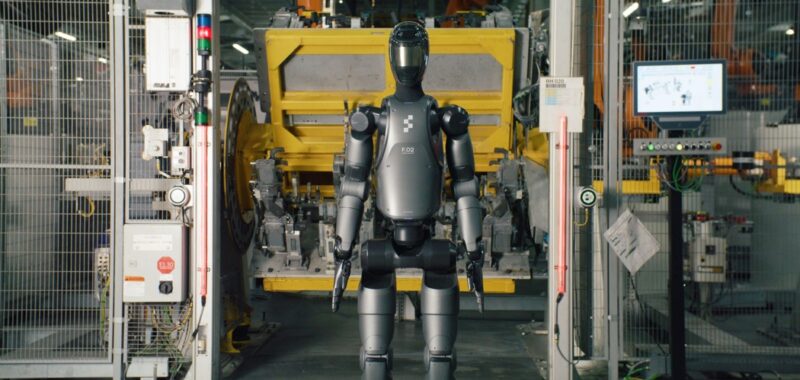At its Spartanburg plant in South Carolina, BMW tested a humanoid robot from the startup Figure. For several weeks, the Figure 02 successfully fitted sheet metal parts into specific fittings, which were then assembled as part of the car chassis. To achieve this mission, the robot had to demonstrate great dexterity, made possible by its hands, which have 16 degrees of freedom (compared with 27 for humans) and a strength equivalent to that of a human worker.
The Figure 02 embodies the latest technological advances in robotics. The robot measures 1.70m and weighs 70kg. It can walk at up to 4 km/h and has a five-hour running time. It is far more powerful than the Figure 01, which already impressed by operating a coffee machine, handling an apple or stacking dishes on a draining rack. It can perform human-like tasks completely autonomously, with perfect coordination of both hands. Indeed, Figure is now at the forefront of robotics research, especially since the startup teamed up with OpenAI to integrate ChatGPT into its devices. The aim is to eventually enable them to interact with humans.
For BMW, the idea is to determine the possible applications of these humanoid robots in the automaker’s production process, in particular to avoid employees having to perform potentially dangerous or tiring tasks. For the time being, no precise timetable has been set for the arrival of these robots in the group’s factories. While BMW above all emphasizes the help these robots can provide, the firm avoids the thorny issue of the robots potentially replacing human staff in certain positions.
The latest version of Boston Dynamics’ fully electric and autonomous Atlas humanoid robot is also due to be tested on a Hyundai production line. Today, only the Chinese manufacturer Unitree has its robots on the market for businesses to buy, starting at just $16,000.

